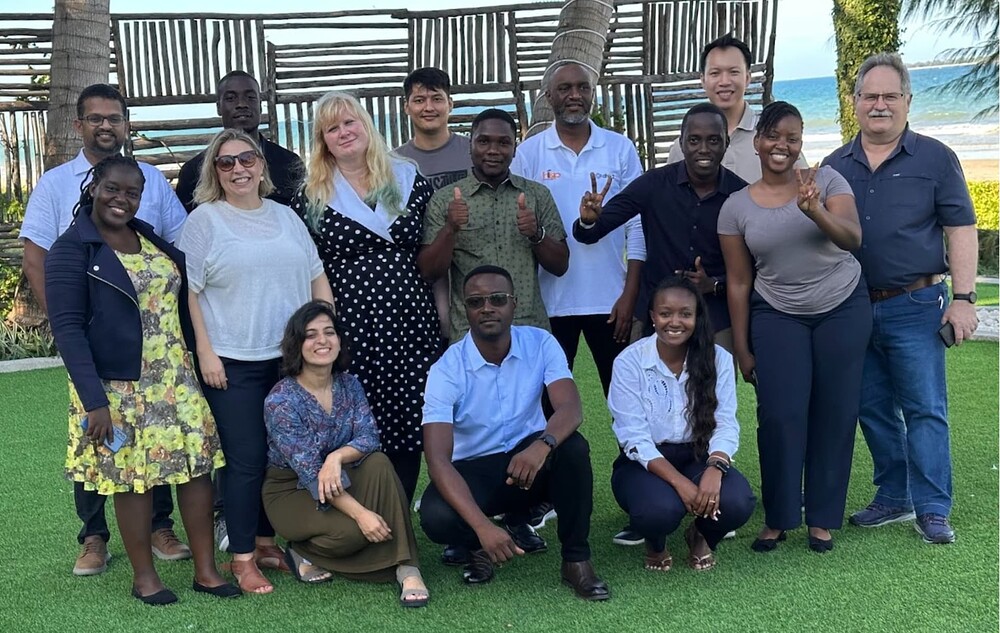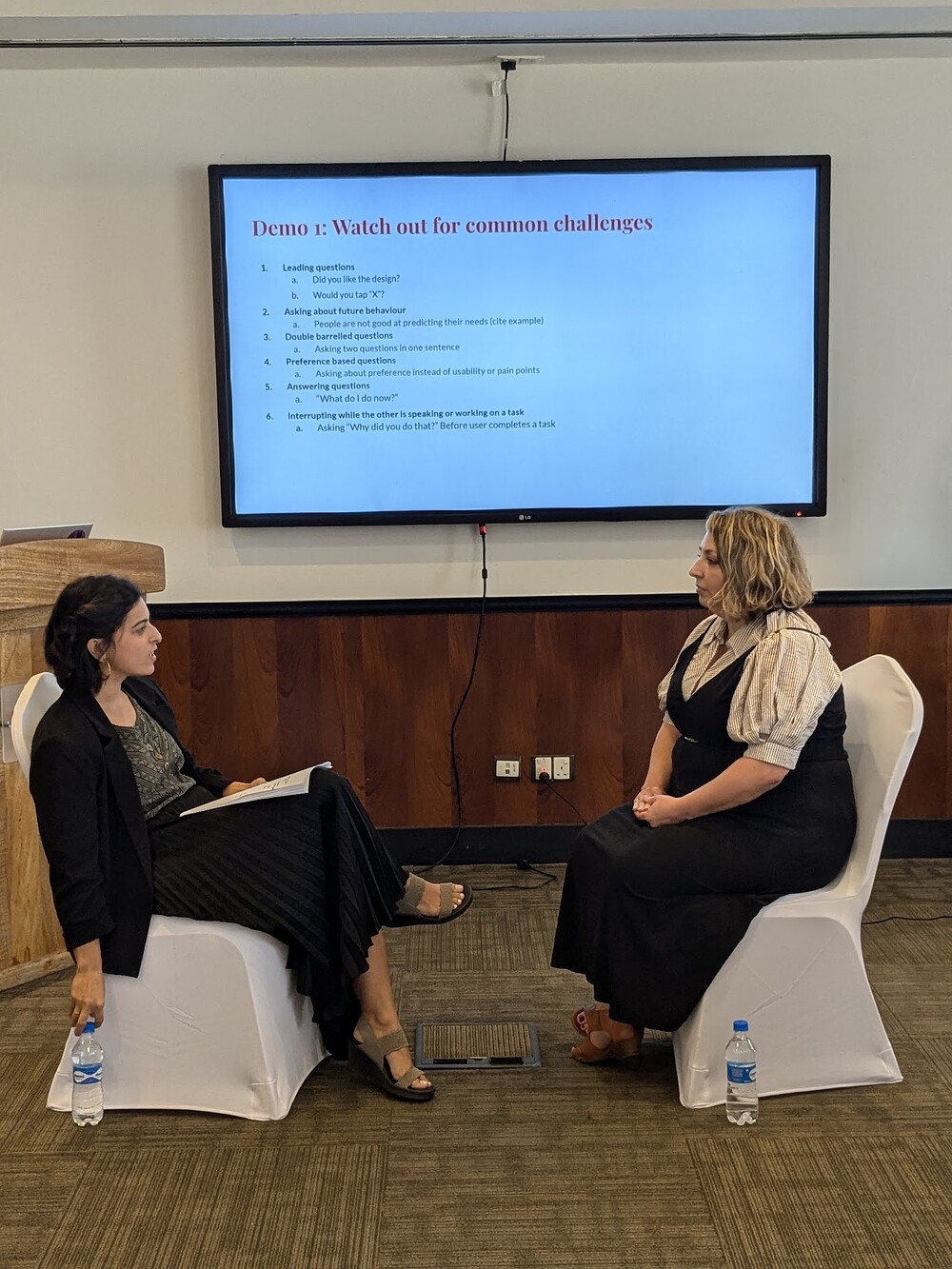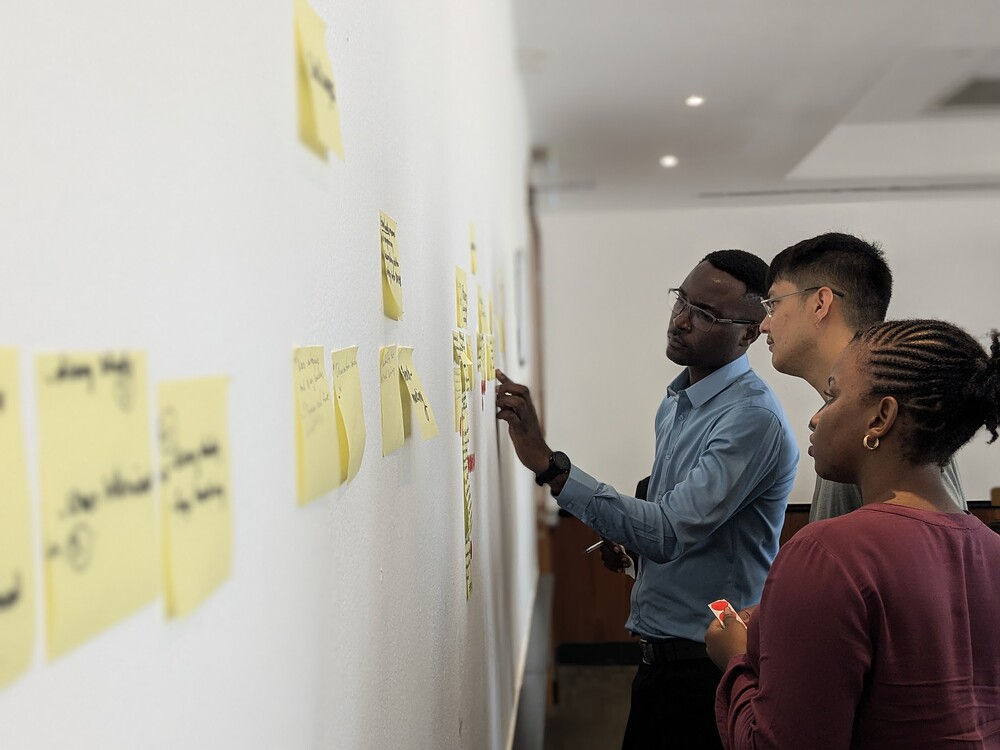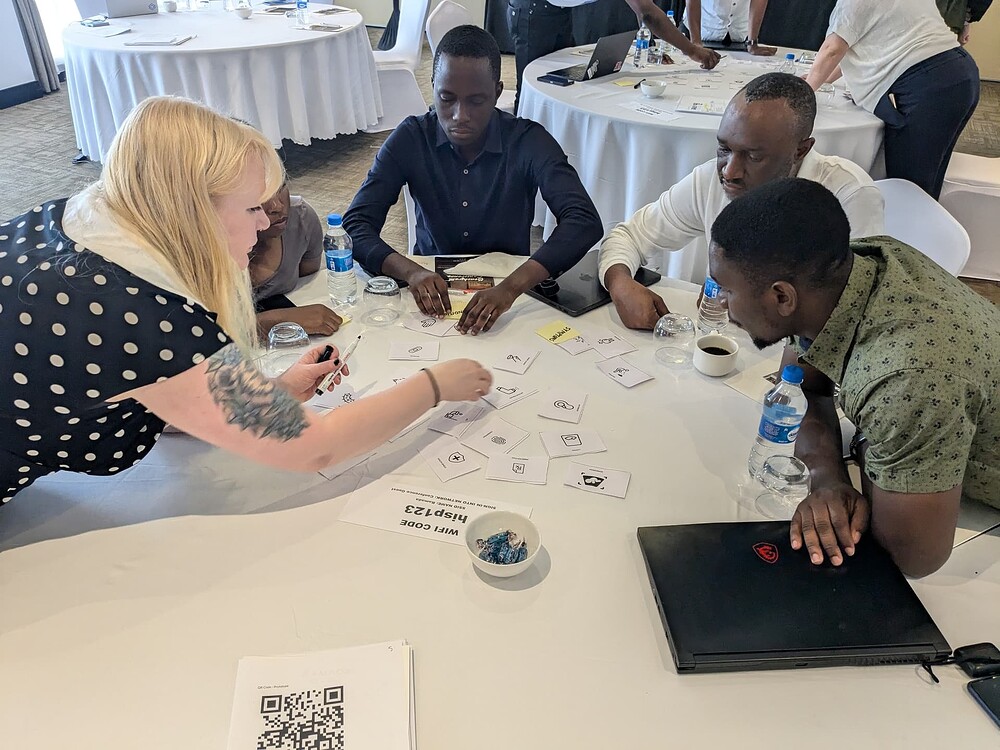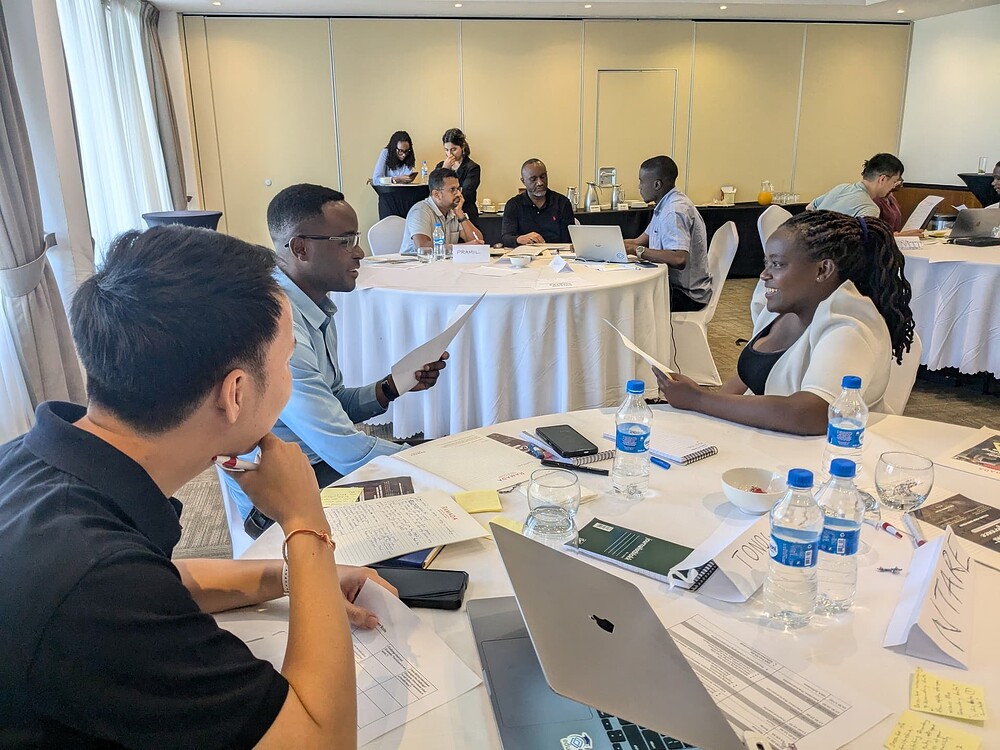The DHIS2 Design team recently conducted an engaging UX Fundamentals workshop in Dar-es-Salaam, Tanzania, bringing together 12 participants from across HISP networks, including teams from Tanzania, Mozambique, Rwanda, Uganda, WCA, India, Sri Lanka, Vietnam, and UDSM Lab. This workshop aimed to equip participants with foundational knowledge and practical tools to gather user experience (UX) feedback effectively throughout the software lifecycle. A key focus was enabling participants to collaborate with the UiO team in gathering actionable UX insights from the field, even within the tight timelines often required in public health settings.
The workshop was conducted in two parts: a remote session to introduce the fundamentals, followed by an intensive five-day in-person workshop in Dar-es-Salaam. This blended approach combined theory with hands-on exercises to create an immersive learning experience. The curriculum centered on identifying research problems, formulating strong research questions, and mastering two essential methodologies: interviewing and usability testing. Participants practiced conducting unbiased interviews and writing task scenarios for usability tests, each tailored to their unique contexts. Special emphasis was placed on navigating the challenges of public healthcare environments, such as limited resources, unpredictable internet connectivity, and the need for quick adaptability.
To ground the training in real-world application, the Secondary Data Entry initiative (an initiative prioritised for the upcoming V42 release) was used as a case study. This gave participants the opportunity to apply their skills in a tangible way, from preparing interview guides and priming participants to synthesizing insights. The sessions also encouraged open discussions about advocating for user experience, persuading stakeholders, and cultivating a culture of actively listening to users.By focusing on collaborative problem-solving, participants were better prepared to bring actionable insights back to their teams.
Looking ahead, the Design team plans to maintain regular contact with workshop participants, providing ongoing support for their UX initiatives and fostering a sustained dialogue. This continued collaboration will not only strengthen the broader HISP network’s UX capabilities but also ensure that the insights gathered through these efforts are integrated into DHIS2 development in meaningful ways.
We would love to hear from you too! What UX Challenges does your team face, and have you developed any workarounds? Comment below, or reach out to the design team to share your experience! If you have questions, or would like help in tackling any challenges, please reach out to us at design@dhis2.org.
